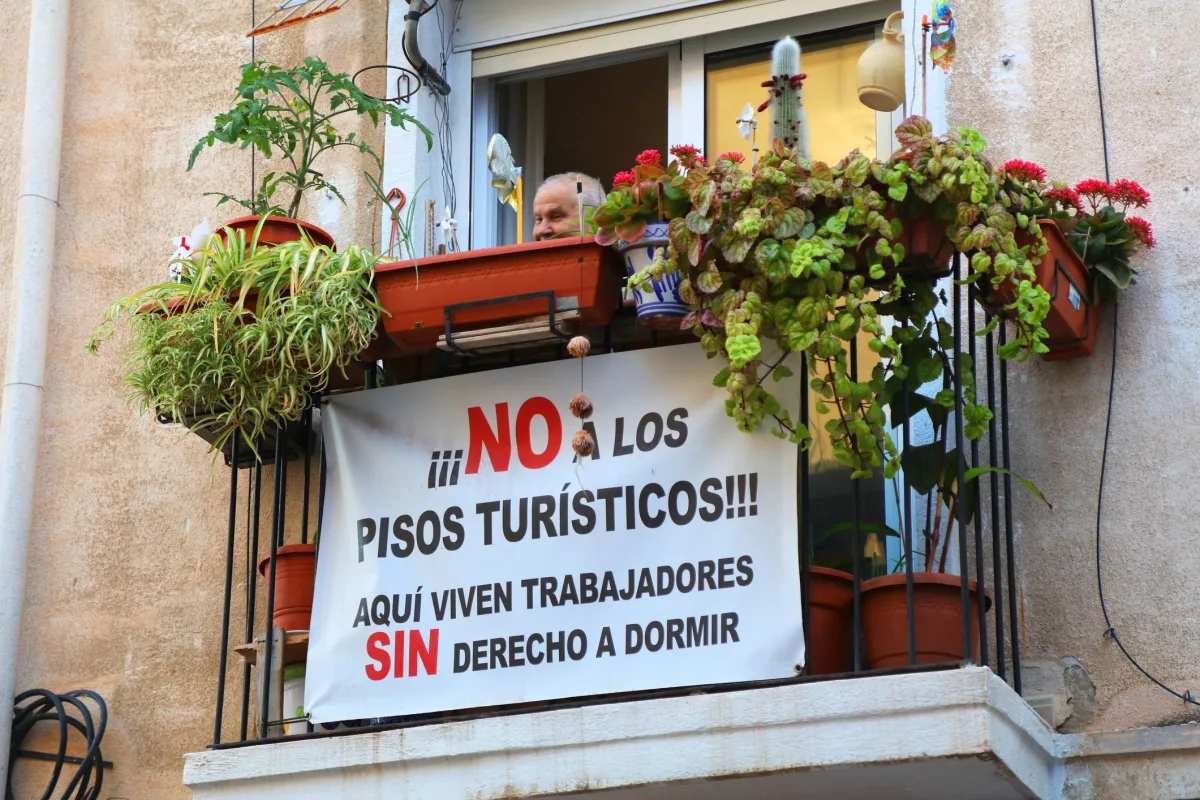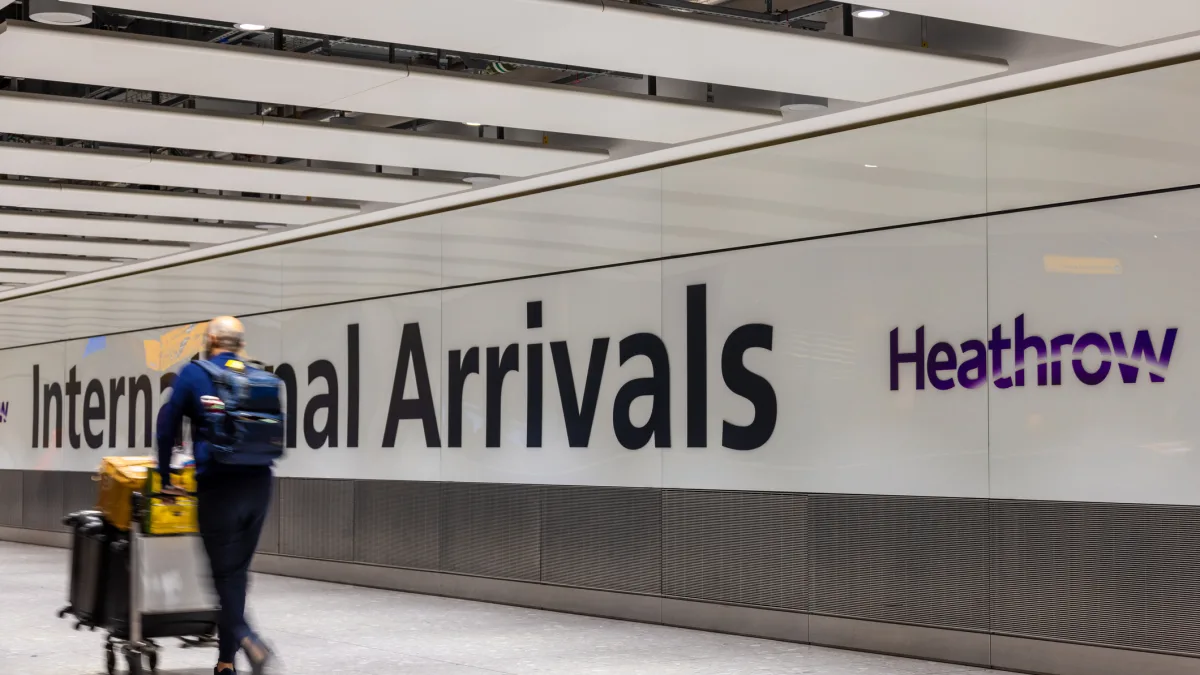The tourists clutching their water-soaked phones in Barcelona’s Gothic Quarter earlier this summer might have wondered if they had stumbled into some peculiar Catalan festival. They had not. Local residents, armed with water pistols and chanting, “One more tourist, one less resident”, were delivering a message that, from Venice to the Canary Islands, is becoming impossible to ignore: enough is enough.
Welcome to the summer of overtourism—or rather, the summer when the world finally admitted overtourism had become unmanageable. This is the first year since the Covid-19 pandemic that global tourism is expected to set new records, and the consequences are washing up on the shores of even the most seasoned destinations like unwanted plastic bottles.
The arithmetic is brutal. Including day trippers (those who do not stay overnight) Venice receives 20 million visitors annually for a population of just 50,000. Barcelona welcomes 15.5 million tourists each year. France led Europe with 100 million million foreign visitors in 2024—far outnumbering its 66 million citizens.
The economics of excess
For many destinations, tourism has become both lifeblood and poison. Croatia’s tourism sector contributes around 11.3 per cent directly to GDP, though when including all related activities, the figure rises to 24.5 per cent—generating nearly 15 billion euros in revenue in 2024.
Across the EU, travel and tourism contributed almost 1.8 trillion euros to GDP in 2024, representing more than 10 per cent of the bloc’s economy.
Such dependence creates a sinister dilemma. Tourism provides jobs and foreign currency, particularly for southern European economies. However, protesters argue that uncontrolled tourism has sent housing prices soaring and forced people out of their neighbourhoods as dwellings are given over to short-term rentals.
The pandemic offered a brief reprieve. During shutdowns, many cities experienced a more peaceful, less crowded version of themselves—making the impact of ‘revenge travel‘ more extreme. Rather than using this pause to redesign tourism for sustainability, most destinations simply rushed to restore visitor numbers to pre-pandemic levels. A missed opportunity of disastrous proportions.
Flight risk
At the heart of overtourism lies a fundamental market failure: aviation’s environmental costs remain largely externalised. Emissions from flying in Europe rose 26 per cent in the five years preceding Covid-19, far outpacing other transport modes. Aviation accounts for 2.5 per cent of global CO2 emissions but has contributed around four per cent to global warming when non-CO2 effects are included.
The global low-cost airline market is projected to reach 440.46 billion US dollars by 2030, democratising travel in ways that would have been unimaginable a generation ago. Nevertheless, this democratisation comes with a sting: only three per cent of the global population flies regularly, yet the consequences of aviation emissions affect everyone.
The mathematics of carbon are unforgiving. Avoiding a return flight from New York to London is as climate-friendly as carpooling for two years or eating a plant-based diet for three and a half years.
Higher prices might help. Research shows that flight ticket taxes imposed by some European countries can reduce the number of flights by 12 per cent on average, resulting in a 14 per cent reduction in carbon emissions. However, connecting passengers are currently exempt, meaning that the average effect on the market as a whole turns out to be a far more modest four per cent.
The backlash begins
Back on the ground, some cities are fighting back with fees and taxes. Venice last year introduced a fee (starting at five euros) for day-trippers on the busiest days, which netted more than 2.4 million euros for the city. Amsterdam has raised its tourist tax to 12.5 per cent of accommodation costs—the highest rate in Europe. Barcelona’s tourist tax is four euros per night.
These fees and taxes appear to have had little impact on visitor numbers, however. Despite Amsterdam’s steep tourist tax, the city has welcomed an increasing number of tourists. Venice’s day-trip fee failed to reduce tourist numbers during its trial period. Tourists appear to be largely price-insensitive to such modest levies.
Elsewhere, solutions have been more creative. Japan blocked a view of Mount Fuji that was leading to traffic jams caused by photographers. Copenhagen rewards tourists with free food for picking up litter or engaging in eco-friendly activities. France is engaging social media influencers to highlight less-visited areas, hoping to decrease interest in overcrowded destinations.
The most dramatic measures involve outright bans. Barcelona plans to shut all holiday apartments by 2028. Florence has banned new short-term rentals in its historic centre and offers three years of tax breaks to landlords who switch to long-term leases.
Such policies treat the symptom rather than the disease, but desperate times call for desperate measures.
Towards a new model
The solution to the problem of overtourism perhaps lies not in abandoning tourism but in reimagining it. The current model—maximising visitor numbers to generate revenue—has reached its limits. A more sustainable approach would prioritise value over volume.
Barcelona’s Deputy Mayor Jaume Collboni captured this shift: “Our model is no longer mass tourism but quality tourism, which adds value to the city”. Rwanda offers an instructive example: it doubled the price to track mountain gorillas to 1,500 US dollars, with strict limits on participants, yet demand has remained strong.
The aviation industry must not escape. Ending tax exemptions on kerosene and implementing frequent flyer levies could ensure that those who fly most pay for aviation’s actual costs.
Infrastructure investment matters too. Enhancing train infrastructure and offering comfortable night trains with convenient connections across borders could provide alternatives to short-haul flights.
Paradise lost, paradise regained?
Tourism’s promise—to broaden minds and boost economies whilst preserving cultural heritage—need not be abandoned. But achieving it requires acknowledging that infinite growth on a finite planet is impossible. As UNESCO officials warn, protests will “absolutely” spread if cities fail to rebalance the interests of locals and travellers.
The water pistols of Barcelona may seem harmless enough, but they represent something profound: a recognition that tourism, like any industry, must operate within planetary and social boundaries. The destinations that adapt first—by pricing externalities, managing capacity, and prioritising resident welfare—will likely emerge stronger. Those that continue pursuing growth at any cost may find themselves with neither tourists nor residents willing to call them home.
The age of cheap, consequence-free travel must end. What comes next will determine whether tourism remains a force for cultural exchange and economic development, or becomes a cautionary tale of how market failures can destroy the very things they seek to commodify. The choice, as they say, is ours—though the planet may not wait much longer for us to make it.
Photo: Dreamstime.







